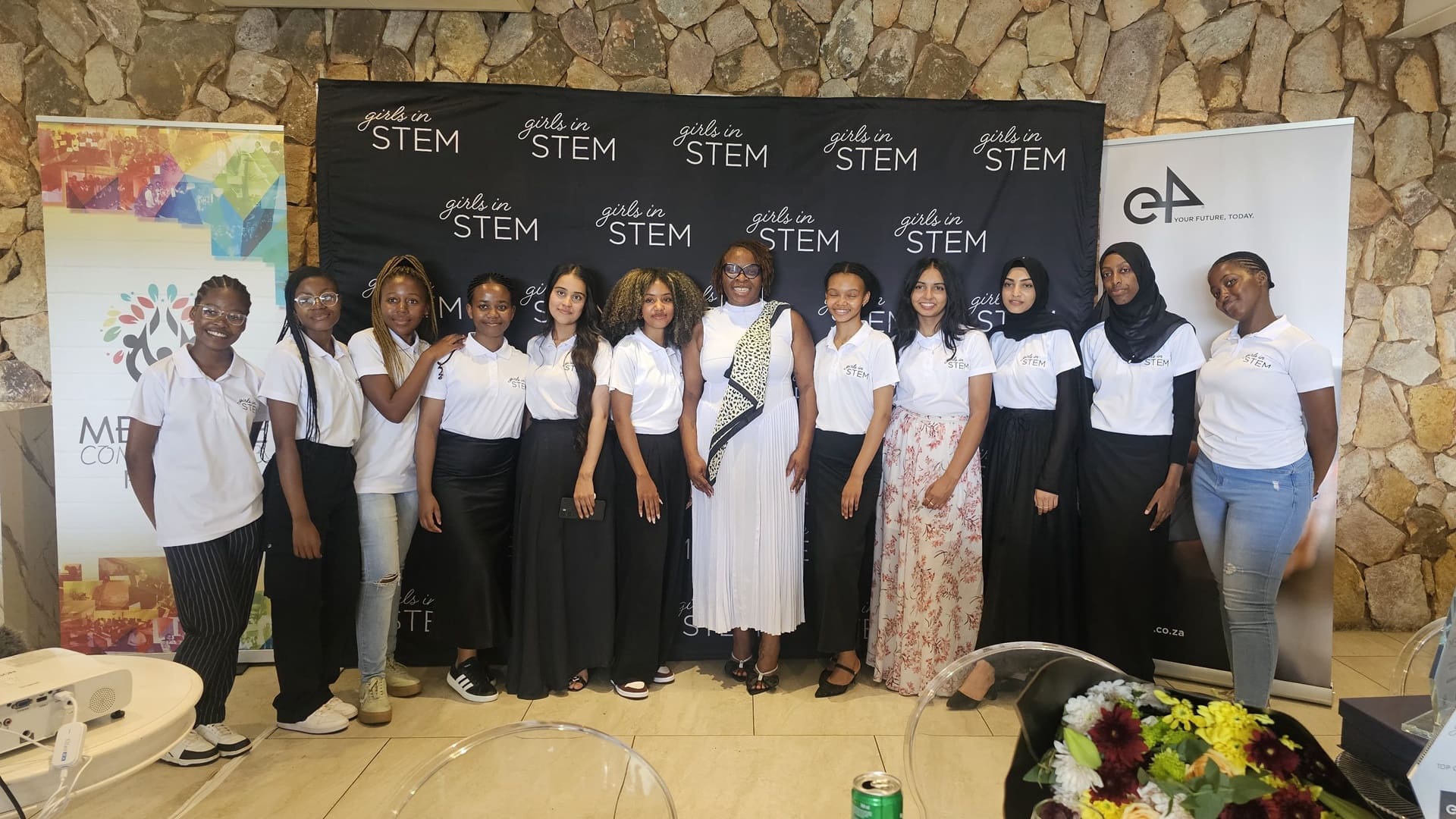- 100 percent of the Matric cohort in the Girls for STEM programme passed their final exams.
- Many of these students have secured space and funding at local universities.
- The project kicked off in 2021 and is always looking for further assistance.
Last week, the e4 Girls in STEM programme celebrated the fact that 100 percent of the Matric cohort passed their exams.
Launched in 2021 by the Melisizwe Computer Lab Project which partnered with e4, Girls in STEM sought to equip young women with the skills needed to succeed in technology-related field. The programme, which includes a mentorship aspect, has over the last four years reached learners and maximised their academic potential.
These young women are not just excelling academically – they are breaking barriers in an industry where female representation is still lacking. Their success is proof that with the right support, talent and determination can thrive. e4 was the first corporate sponsor to believe in this vision, and their investment has helped make this journey possible”, explains chief executive officer of Melisizwe, Candice Kern-Thomas.
The top achievers this year include Talitha Moosa who achieved 95 percent in Physical Sciences and 96 percent in Mathematics. She intends to study Actuarial Science at Wits University.
Mbali Shata earned distinctions in Mathematics and Physical Science and has secured a bursary to study at Sefako Makgatho Health Sciences University.
Aisha Patel was also a standout performers in Mathematics and Physical science, she was received offers to study Computer Science at UCT and UJ.
The Girls in STEM programme has a 51 percent retention rate and according to e4, this is a demonstrates its effectiveness at keeping girls engaged in STEM subjects.
While e4 provides support for the programme in the form of mentorship, career exposure, and guidance throughout the students’ high school careers, the programme hopes to expand and reach more learners.
“We have proven that this model works,” says Kern-Thomas. “Now it’s time to scale. We need more industry players to step up, invest in education, and help create a truly inclusive digital future,” she adds.
To find out more about what the Melisizwe Computer Lab Project does, head to the official website here.

